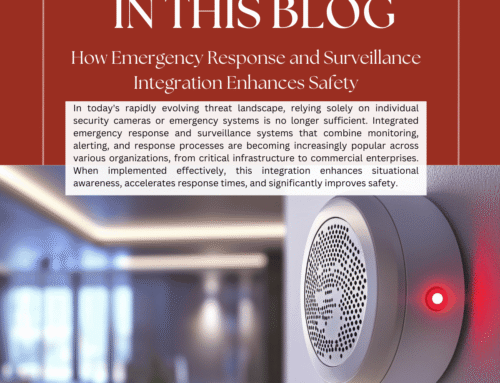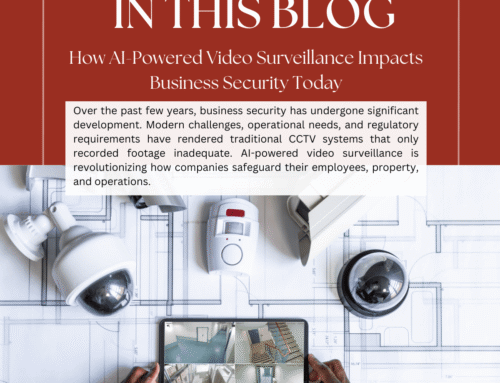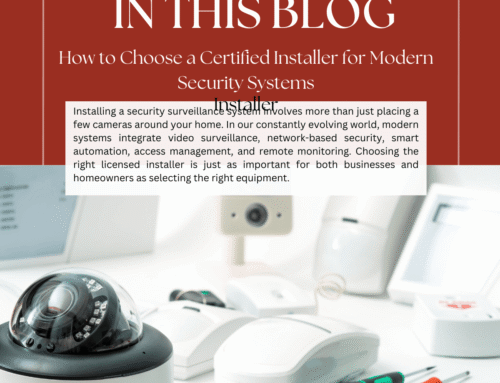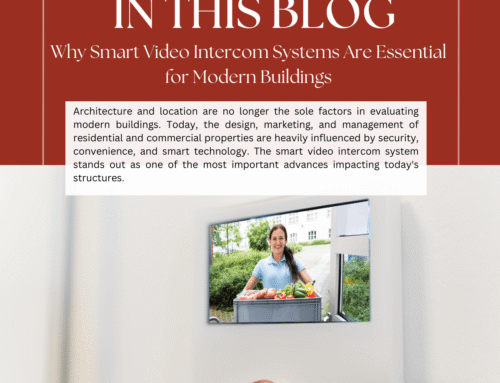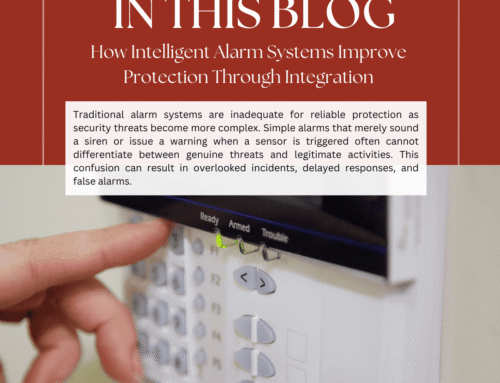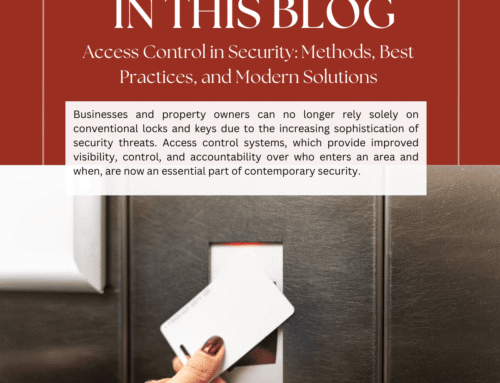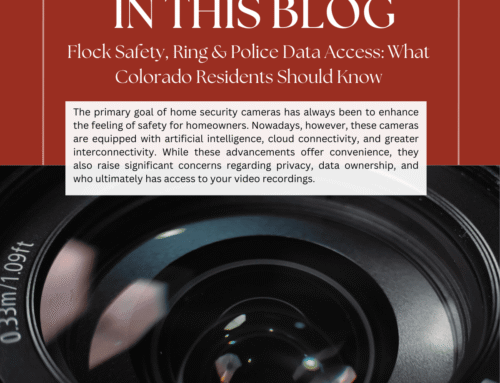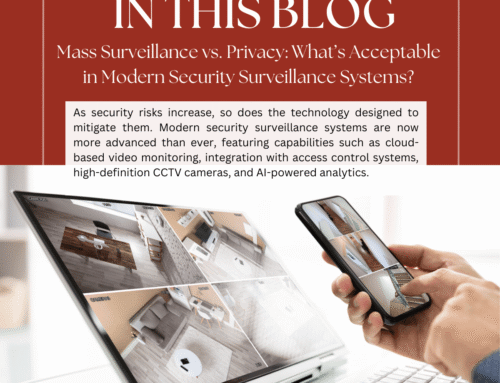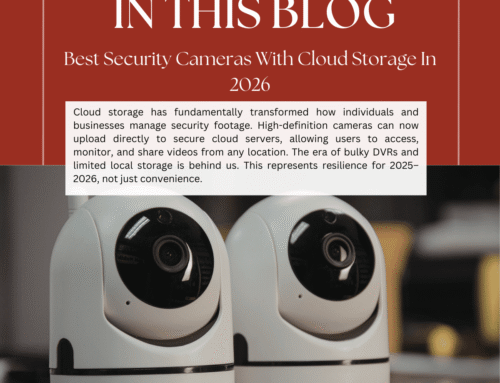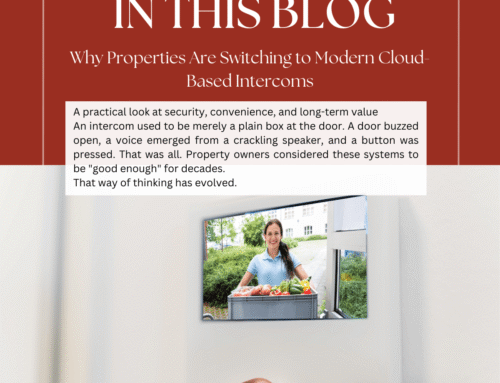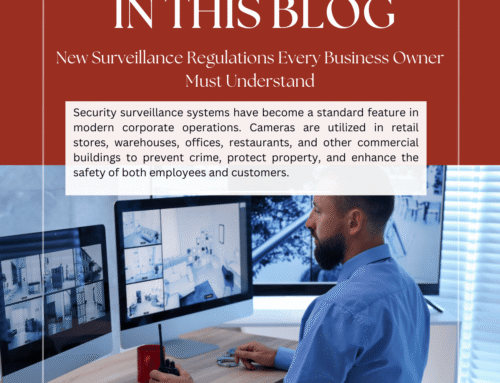Cloud-Based vs. On-Premise Access Control: Which is Right for Your Business?
Selecting the appropriate access control system may have been a significant impact on the security of your establishment. Businesses today have to decide between cloud-based and on-premise access control system, or even combination of both, due to advance technology. We’ll discuss the advantages and disadvantages of each in this blog, as well as provide a hybrid approach that could be ideal for your requirements.
Business use access control to limit who is allowed to enter a room, building, or computer system. Keycards, PIN codes, or biometric readers linked to a centralized system are typically used in physical security. Metal keys are no longer the only kind of access control used nowadays. Businesses may now choose between on-premise systems, which need local servers and equipment, and cloud-based systems, which are controlled remotely.
Choosing the appropriate security infrastructure has never been more important in a world where companies are dealing with an ever-increasing demand for flexibility and scalability. However, which one should you choose? The more contemporary cloud-based system or the more conventional on-premise solution—or a hybrid approach offer for both?
What Is Cloud-Based Access Control?
Cloud-based access control solution store and manage your security data on distant servers that are reachable online. Whether you’re across the street or halfway around the world, this architecture enables administrators to monitor security events, control access rights, and interface with other systems from any location.
For companies that require scalability and flexibility, the cloud-based strategy is revolutionary. Heavy on-site infrastructure is not required because everything is controlled remotely, and the system may readily expand as your company expands. Cloud-based access control may be invaluable for companies that operate across several site, have distant location, or must swiftly adjust to new challenges.
Cloud systems are particularly beneficial for businesses that want to smoothly combine many technologies. Consider automating key management procedures or linking your access control system with HVAC system of your building. Cloud systems make it simpler than ever to integrate all your equipment.
Pros of Cloud-Based Access Control:
- Remote Access and Flexibility: you can monitor and control your system from any location with an internet connection, enabling you to react instantly to security mishaps wherever you are.
- Scalability: without the trouble of physical modification, you can easily grow the system to meet your changing demands. Do you need to install new access points, doors, or sensors? It only takes a few clicks using a cloud system.
- Lower Initial Investment: low initial expenses are achieved by eliminating the requirement for expensive on-site servers or infrastructure. Business looking to cut capital expenditure may find cloud-based technologies to be a compelling alternative.
- Software Updates: you can relax knowing that your system is constantly up to date without requiring human participation. This guarantees that you are shielded from the most recent security risks.
- Lower Maintenance Costs: you save time and money by having the services provider take care of system upgrades, backups, and troubleshooting. Your internal staff may concentrate on other tasks without having to worry about hardware maintenance on-site.
Cons of Cloud-Based Access Control:
- Reliance on Internet Connectivity: Remote system management and access require a dependable internet connection. Although cloud-based systems are often dependable, your ability to monitor your security system in real time may be impacted by poor connectivity.
- Ongoing Subscription Fees: Although the system cost lee up front, there will eventually be subscription fees to take into account. However, many firms feel that the subscription cost are a cost-effective alternative when compared to the total cost of running on-premise system, especially when you take into account the infrastructure and maintenance savings.
- Possible Security Issues: Some companies might be hesitant to store critical data off-site, even though the majority of cloud service employ strong encryption. Make sure your cloud provider satisfies your security and compliance needs by carefully screening them.
- Internet Reliability: Since cloud-based systems rely on an internet connection to transmit data, disruptions may refer with operation. By using local backup system that sync data as soon as the internet connection is restored, many providers minimize this potential risk.
What Is On-Premise Access Control?
On the other hand, on-premise access control solutions depend on actual servers’ equipment that are stored on-site. Companies are in charge of handling all data, configurations, and system setting locally in addition to owning and maintaining the equipment.
On-premise solutions have proven a reliable option for many companies, particularly those managing sensitive data or operating highly regulates sectors. On-premise solution offers an extra degree of protection and control in industries like government, healthcare, and critical infrastructures, which might be crucial for fulfilling certain legal obligation.
Pros of On-Premise Access Control:
- Total Command: everything is within your control, including security, maintenance and system settings. You now have total control over data and infrastructure.
- Increased Security: sensitive data is not saved on cloud because everything is kept locally. For companies that follow severe security procedures or work in delicate sectors.
- Customized infrastructure: combine the system with current on-site technology and modify it to meet your specific requirements. With on-premise solution, you may design a more customized strategy if you have specialized hardware or old systems.
Cons of On-Premise Access Control:
- Increases Upfront Expenses: you will have to spend money on servers, hardware, and physical infrastructure. For some organization, this is upfront cost might be an important obstacle to accept.
- Continuous Upkeep: regular updates, fixes, and system security are your responsibilities. In order to manage and maintain the infrastructure, an internal IT staff is needed which result is more operational cost.
- Limited Remote Access: most on-premise solution does not come with remote administration built-in. while remote access to the system is still feasible in some situations, it often necessitates the use of remote desktop software or VPN’s, as well as appropriate training and a certain level of technical expertise on the part of staff members. Compared to cloud-based alternative, this may make system management convenient.
- Scalability Issues: adding more hardware and updates is typically necessary to expand the system, and they can be expensive and time-consuming. The expenses and difficulties of expanding on-premise system increases with the size of your company.
What Do Colorado’s Statistics Show About Cloud Vs. On-Premise Security?
The expanding corporate environment in Colorado is moving towards more intelligent, scalable solutions, particularly in major cities like Denver, Boulder, and Fort Collins. More than 63% of Colorado’s small-to-mid sized enterprises started in 2024 Allied market research poll that they want to implement cloud-based security solutions by the end of 2025. Leading the way are sectors including healthcare, retail, and education.
What causes the change? The main reason mentioned by the owners are real-time notifications, remote administration, and flexibility. Additionally, cloud-based access management is swiftly taking over as the new standard due to Colorado’s tech-savvy population and urban growth.
Which One Is Right for Your Business?
Here’s how you decide:
There are a number of significant distinctions between on-premise and cloud-based access control solutions. Because of their easy scalability and integrated remote access, cloud-based solutions are usually the ideal choice for expanding companies or organizations with many locations. Although they are more affordable initially, they have ongoing charges for subscription and are vendor-managed, which means that maintenance and upgrades are done off-site. On the other hand, companies with static, long term installations or high security sectors are better suited for on-premise solutions. These systems provide reduced long-term expenses and more control over data and system setup, but they also come with a larger initial cost and require continuous support from the internal IT personnel. In contrast to cloud systems, on-premise solutions for remote access usually require extra infrastructure, such as VPN’s and are more complicated to expand or customized.
Cloud vs. On-premise Security in Colorado: What are the Statistics saying?
The business environment in Colorado is changing, particularly in rapidly expanding areas like Denver, Fort Collins, and Colorado Springs. Scalable and adaptable security solutions are becoming more and more necessary as companies grow and use smarter infrastructure.
In 2023, 48% of US. Firms are actively moving to cloud-based access control solutions, up to 36% in 2020, according to a security industry association study. The study identifies a growing trend in western states, including Colorado, where clous solutions are being adopted more quickly my sectors including IT, healthcare, and hospitality.
Due to remote accessibility and cheaper IT expense, small and mid-sized firms in Colorado are actually 35% more likely to choose cloud-based access management during expansions or renovations, according to local statistics.
Frequently Asked Questions (FAQ’s)
- Is cloud-based access control secure?
Answer: Yes. Reputable suppliers safeguard your system with ISO-compliant data centers, multi-factor authentication, and end-to-end encryption. - Is it possible for to move from on-premise to cloud-access?
Answer: Of course. Numerous systems provide easy transfer.
- What occurs if there is an internet outage?
Answer: The majority of contemporary cloud-based systems have offline modes that enable access even when there is an outage. Features for management and logging, however, could be momentarily restricted. - What is better for industries that rely significantly on compliance?
Answer: Stronger control is provided by on-premise solutions, making them perfect for sectors like healthcare and finance that have strict regulatory compliance requirements. - Does 0n-premise access control need an IT staff?
Answer: Generally speaking, yes. For software upgrades, troubleshooting, and data backup, on-premise system needs continuous technical assistance.
Concluding Remarks: Integrating Security And Adaptability
Regarding cloud vs. On-premise security, there is no one-size-fit-all solution. The ideal option for you with depend on your industry, internal capabilities, development goals, business size. At Security Surveillance System, we assist companies of all sectors in Colorado in selecting the best access control solution. We provide specialized security solutions that fir your operating requirements and budget, whether you manage a manufacturing facility in Pueblo, a corporate office in Denver or, a small retail store in Lakewood.
Get in touch with our team at www.ssscamera.com



